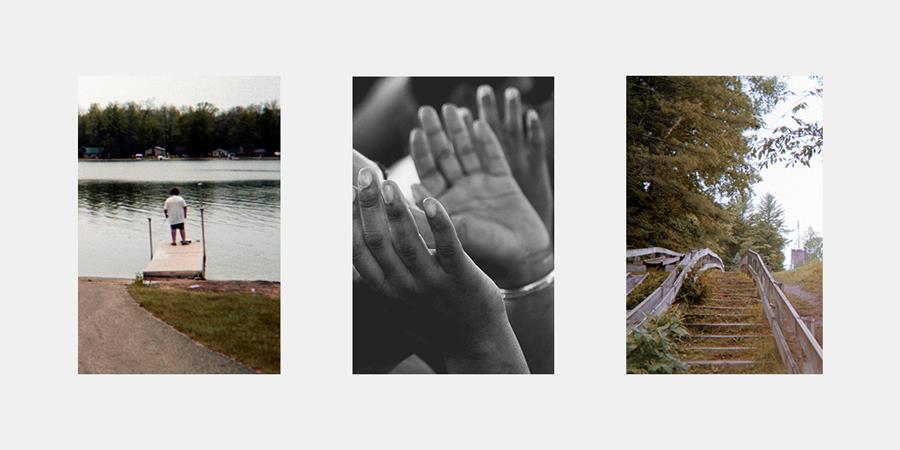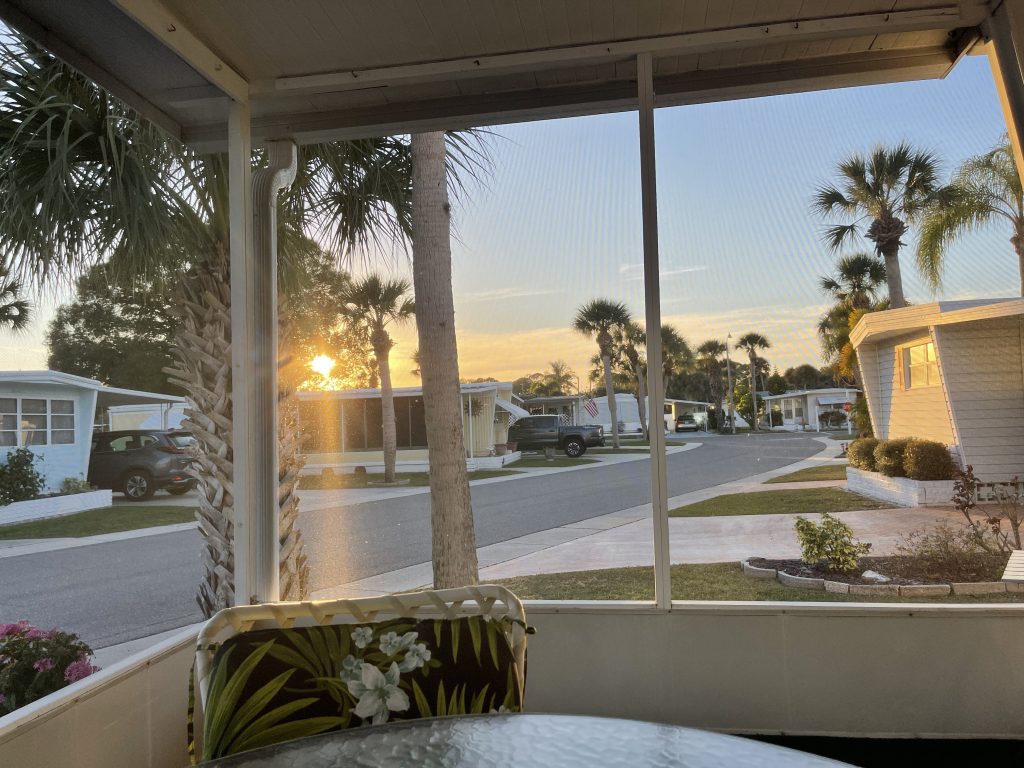
Pandemic
“[The pandemic] might come to resemble our decades-long battle with tobacco. We should neither expect that every stubbornly unvaccinated person will get jabbed before next winter nor despair that none of them will ever change their mind. Let’s accept instead that we may make headway slowly, and with considerable effort. This plausible outcome has important, if uncomfortable, policy implications. With a vaccination timeline that stretches over years, our patience for restrictions, especially on the already vaccinated, will be very limited. But there is middle ground. We haven’t banned tobacco outright—in fact, most states protect smokers from job discrimination—but we have embarked on a permanent, society-wide campaign of disincentivizing its use.”
Benjamin Mazer – The Atlantic
Born Again
For you have been born again, not of perishable seed, but of imperishable, through the living and enduring word of God.
Translation: The Miracle has happened. Everything has changed. The center of gravity has shifted. It is like a total restart. i.e. New Birth.
Still, the typical way the Christian faith gets translated is believe and behave. The problem? This is just not the Christian faith. It is a religion of conformity. The Christian faith is transcendent transformation. The move is not from believe to behave. It is from believe to behold and the outcome is far more powerful than behavior change. It is becoming a completely new kind of human being.
Herein lives the beautiful mystery of the Christian faith. The way is not “replacement” of bad behavior with good behavior. The way is “displacement” of an old life with a new life. The more we focus on behavior the more that behavior will hold us in its grip. The more we behold Jesus, the more Jesus will hold us in his grip. His presence begins to actually displace our problems.
J D Walt
Prayer
To pray is to open up oneself to God who dwells within us. It means holding back nothing from God and sharing everything with God. . . . Only the grace of God can enable us to let go of our fears and allow God to be the God of our lives. True prayer is fundamental for life in God. It is that grace of conversion that opens up our hearts to realize the humble presence of God in our lives. Prayer of the heart is unceasing prayer, where God breathes in us and our hearts are turned toward God. This deepening of our lives in the divine life is the path to self-discovery. In and through prayer we discover our true selves, the self that God has created each of us to be. . . .
Ilia Delio
GOOD NEWS
The United Church of Christ has now paid off more than $100 million in medical debt for people across the United States.The UCC announced Monday (Feb. 14) that it used $200,000 from one of its annual Giving Tuesday campaigns to purchase and pay off $33 million in medical debt for residents of Ohio, where the mainline Protestant denomination is based.
That brought the total medical debt the UCC has purchased and paid off since late 2019 to more than $104 million.
Into the woods
We understand something, we humans: woods are never just woods. Sensing the breaths and rustlings inside, we have learned to marvel at and to mind—at times, to fear—the exhale of otherness that meets us when we stand on the sparser side of a wall of trees.
In storytelling and specifically old Anglo-Saxon fairytales, woods are a place of transformation, a world apart where loss is faced and pain shifts its shape. Always a thin place, woods guard a realm in which the spiritual mingles confoundingly with the temporal. We feel our humanness differently there; no one who goes in comes out the same.
Jamie Townsend
No one is alone
No cure or antidote for our creeping self-centeredness exists, other than humility and the presence of one another. Without these, we do our best and so often don’t have the radical vulnerability to simply say it isn’t enough. We lose our tempers. We miss out on ideas and nuances and growth. We take sides even when there really ought not to be sides for the taking. We judge others. For the more righteous of us, we judge others for judging others and still blindly perpetuate the buzz of masses playing judge, jury, and executioner. We forget to spare such judgment even for ourselves. In summary, we forget that every person who lives and breathes, or almost does or once did, is sacred.
Because life is sacred. Because, as best we can guess, God crafted us and breathed life into us out of his want for nearness and creativity and work and dwelling with us. And so we are not only sacred, but loved.
And no one truly loved by such a constant compassion as their Creator can ever be truly alone, so no one is alone, nor is anyone ever meant to believe such an exceptionally brilliant, crushing lie.
Jamie Townsend
Tapestry
“It will be very interesting one day to follow the pattern of our life as it is spread out like a beautiful tapestry. As long as we live here we see only the reverse side of the weaving, and very often the pattern, with its threads running wildly, doesn’t seem to make sense. Some day, however, we shall understand. In looking back over the years we can discover how a red thread goes through the pattern of our life: the Will of God.” Maria von Trapp
Death in the Modern Church
…the culture has moved even deeper in its “normalization” of death. A mega church in my metropolitan arena has now set a rule that does not allow for the body of a deceased person to be present for the funeral. The service is a “celebration of life” with music, a video presentation, and remembrances (maybe a sermon?). Dealing with bodies is awkward, cumbersome, fraught with emotions, and such. No doubt, the new rules make everything easier for everyone.
Death is anti-modernity. It mocks progress and the project of a better world. At the grave, we have everything in common with a pre-historic figure and nothing in common with the schemes of our modern world. Everything has come crashing to its ironic conclusion. As we bustle about with slogans of a better world we force ourselves to be oblivious to the fact that our Sun is dying and our planet will someday grow cold or be dissolved in fire, or, much sooner, endure yet another extinction-level visitation from a modest-sized asteroid. It is, of course, utterly astounding that the Creator of the universe Himself walked among us, speaking Aramaic, sweating beneath the heat of the noon-day Sun. His visitation alone makes us, the merest specks in a near infinity, remarkable and of significance.
Fr Stephen Freeman
Bible
Everyone reads the Bible from a location, a context. And everyone reads that Bible for their own context. It’s impossible not to. It’s just as impossible not to know these truths.
The ones who don’t know these truths are the ones most dangerous to church and society. To think we are unimpacted by location and that our location does not preform our eyes to see one thing and not another weaponizes the Bible on behalf of one location.
Scot McKnight
You are a Royal Priesthood
…a royal priest moves about among the human race, helping to orient people with the King who sits on the throne at the center of it all. You are a living signpost pointing people to our King and Good Father and helping them get there. To hold your hand is to feel the clasp of mercy. To listen to your voice is to hear the sound of grace. To be in your presence is to smell the fragrance of Christ. To behold your countenance is to share in very Peace of Jesus. To sit with you at table is to taste and see that the Lord is good. You, priest, are a living reminder of the love of God, a way finder for the lost and a way maker for the weary. Instead of giving directions you walk with them along the road. At times you will seem to follow their lead in the wrong direction, patiently waiting for them to come to the end of their broken self and make the turn toward home. At other times, you stand at the end of the road, seeing beyond its winding ways, with your eyes peeled on the horizon looking for the fragile frame of returning sons and daughters—ready to run at the drop of a hat.
JD Walt

View from the beach
This is the final post before returning to Wilmore. It has been an enjoyable three months in Florida. We are deeply thankful for the opportunity. This year has been especially nice as we watched the difficult winter in Kentucky, making It particularly hard not to gloat. If any of you have been subjected to my gloating, please accept my almost sincere apology.
Still on the Journey



